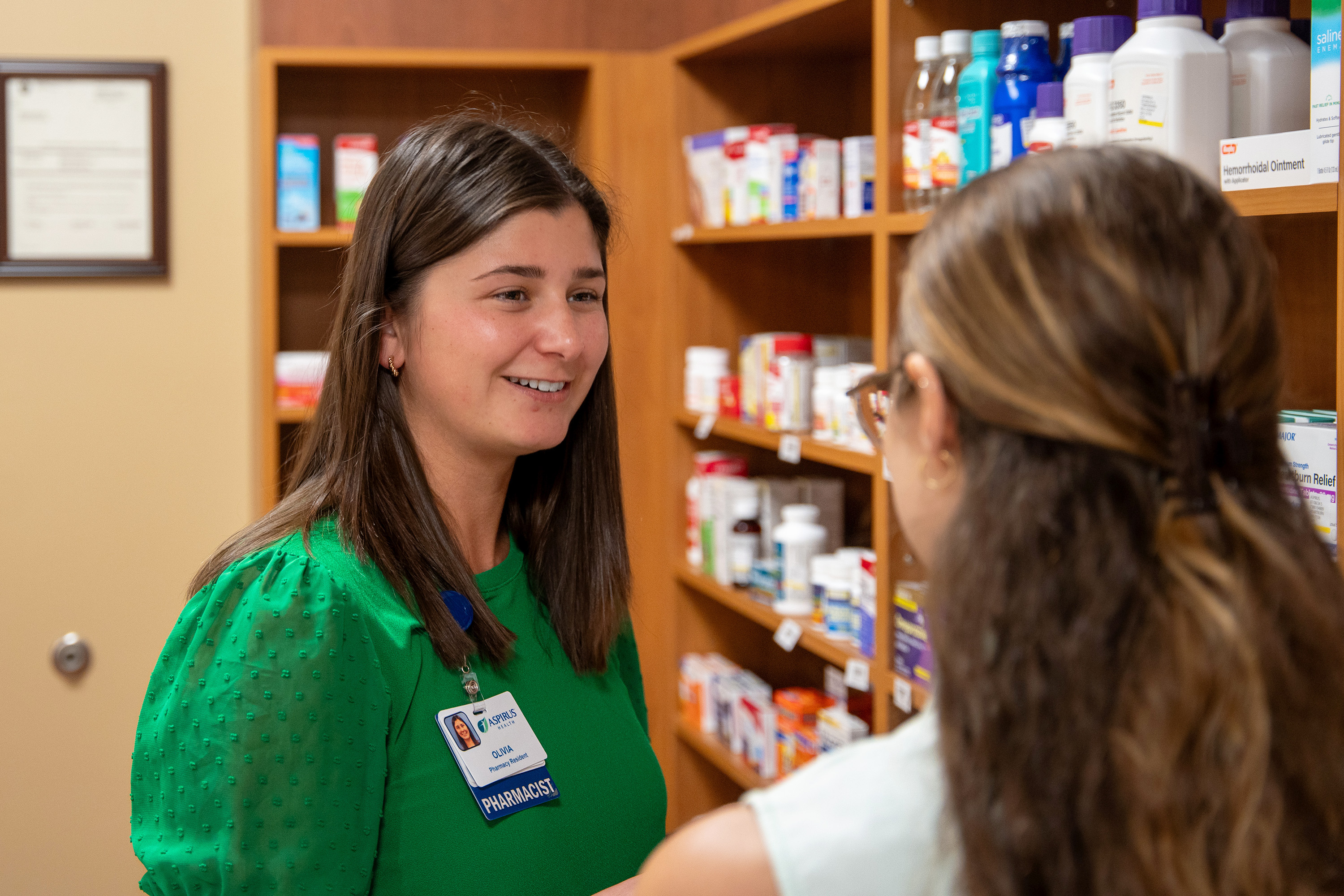Supplement Safety
How to Manage Natural Products Alongside Your Medications
8/15/2024

Olivia Bishop, Aspirus Pharmacy Resident
Many people
incorporate natural products and supplements into their health routines to
enhance their well-being alongside prescribed medications. While these
supplements can offer added benefits, it is crucial to use them safely and
effectively. Olivia Bishop, a pharmacy resident with Aspirus Health, emphasizes
the need for open communication with health care providers to ensure that
supplements complement your medications without causing harm.
“Natural products
can affect how your medications break down in your body,” Bishop explains.
“Sometimes, they can cause a medication to be broken down too quickly or too
slowly, which might impact its effectiveness or increase side effects.”
Several common
natural products can interact with medications in significant ways. For
instance, activated charcoal, used for various purposes, can reduce the
absorption of medications, potentially affecting the efficacy of birth control
or Prozac. Additionally, supplements like turmeric, bitter orange, and
ashwagandha, while beneficial for general health, may lower blood sugar levels
when taken with diabetes medications. Similarly, ginger, ginkgo, and high
levels of fish oil can increase bleeding risk for those on blood thinners such
as Eliquis, Xarelto, or Warfarin.
To ensure that your
medications and supplements work together harmoniously, Bishop advises
consulting with your health care providers. “Before starting any new
supplement, talk with your doctor or pharmacist. They can check for potential
interactions and help you make informed decisions,” she says. “Always inform
them about all the medications and supplements you’re taking.”
It is also important
to understand that natural supplements are regulated differently from
prescription drugs. “Unlike prescription drugs, which require FDA approval,
natural supplements are primarily the manufacturer's responsibility,” Bishop
notes.
For added safety,
look for quality certifications, such as the United States Pharmacopeia (USP)
mark on the label. This certification verifies that the product’s contents are
as stated and safe for use.
“The biggest advice
I have is to talk to your doctor or pharmacist before starting a new product,”
advises Bishop. “We want to make sure your medication is working the best it
can and that the natural supplements are helping you as well.”
By taking these
precautions, you can confidently use natural supplements to support your health
while minimizing the risk of adverse interactions.

Back to all Posts